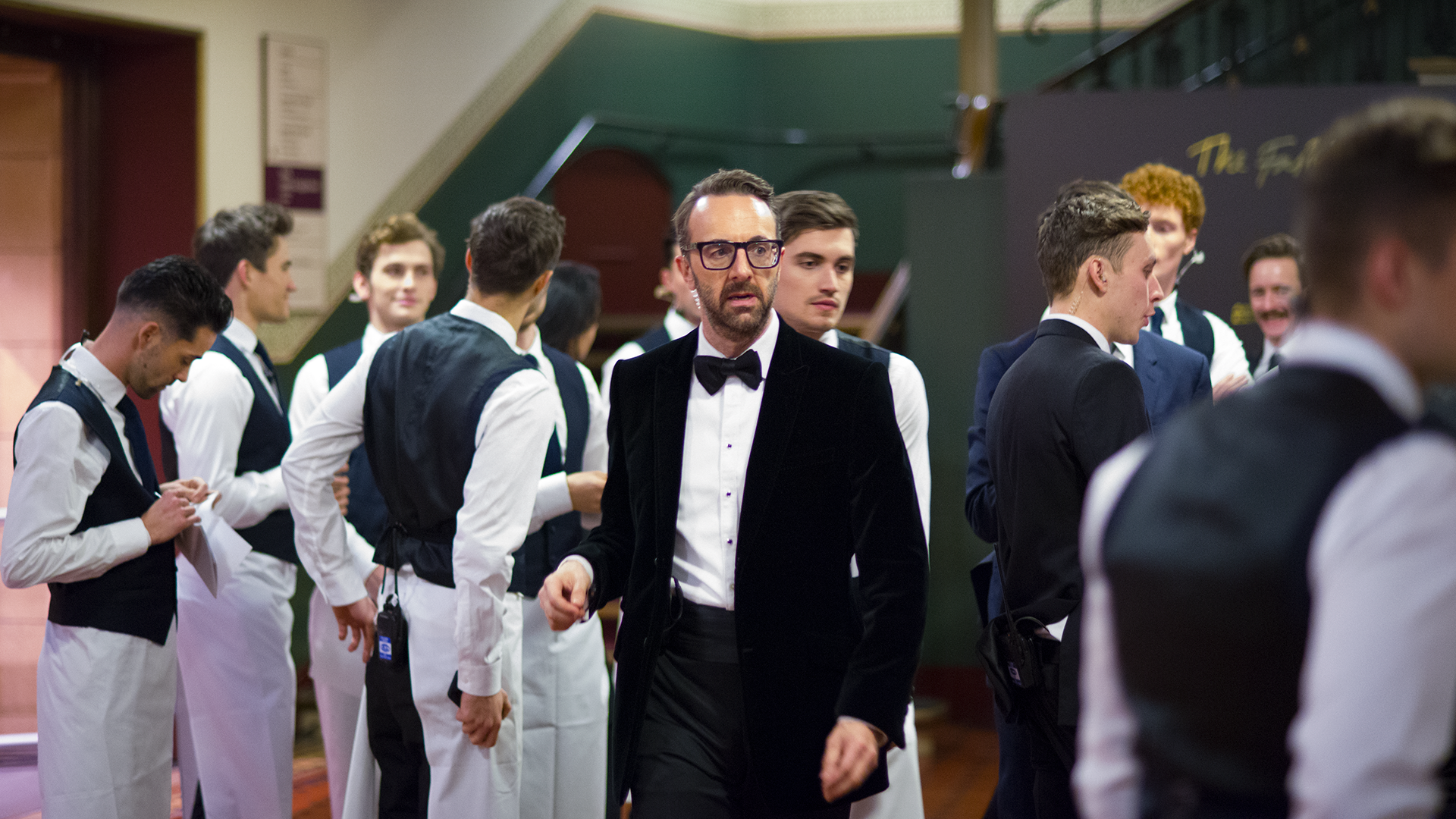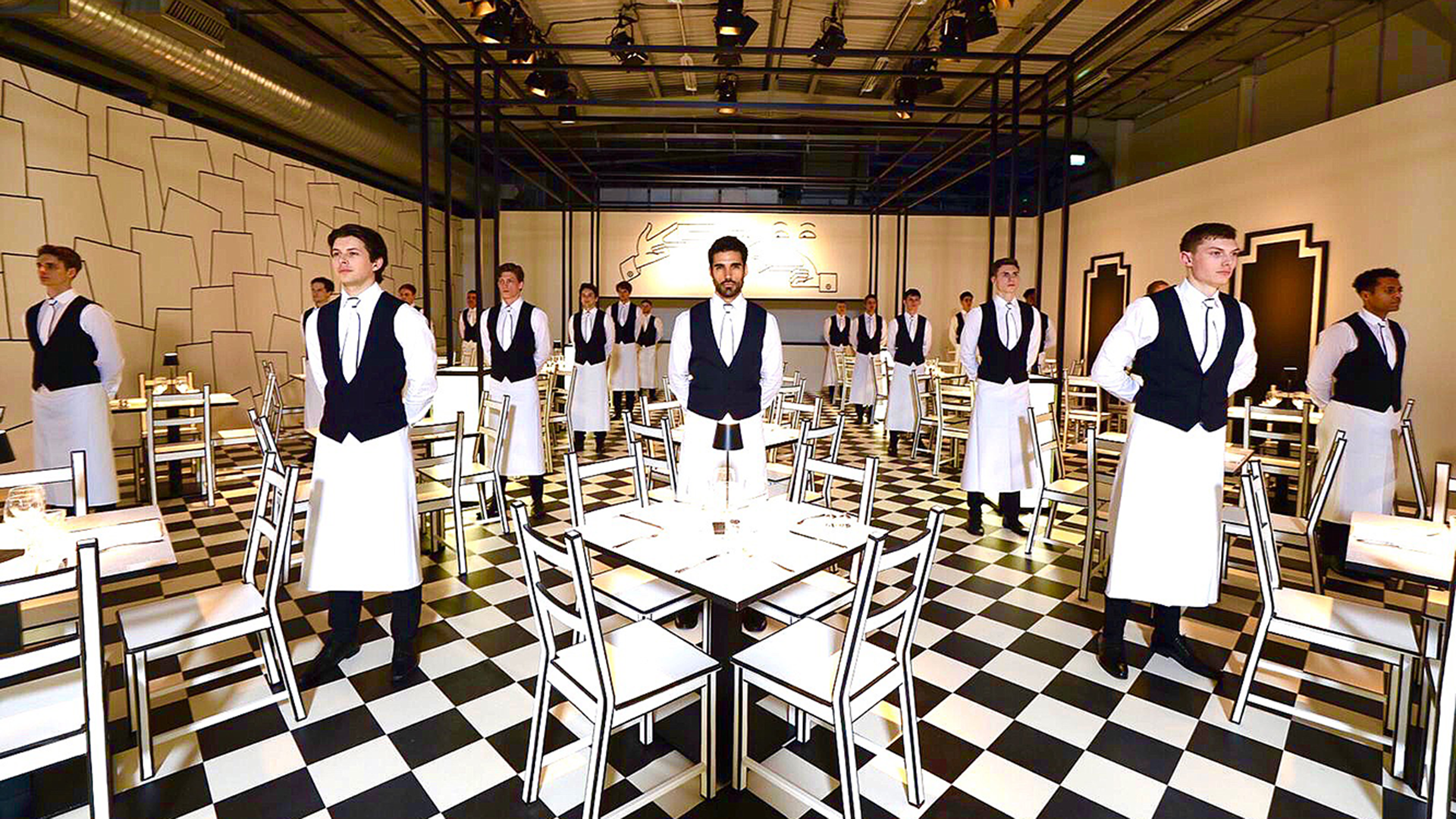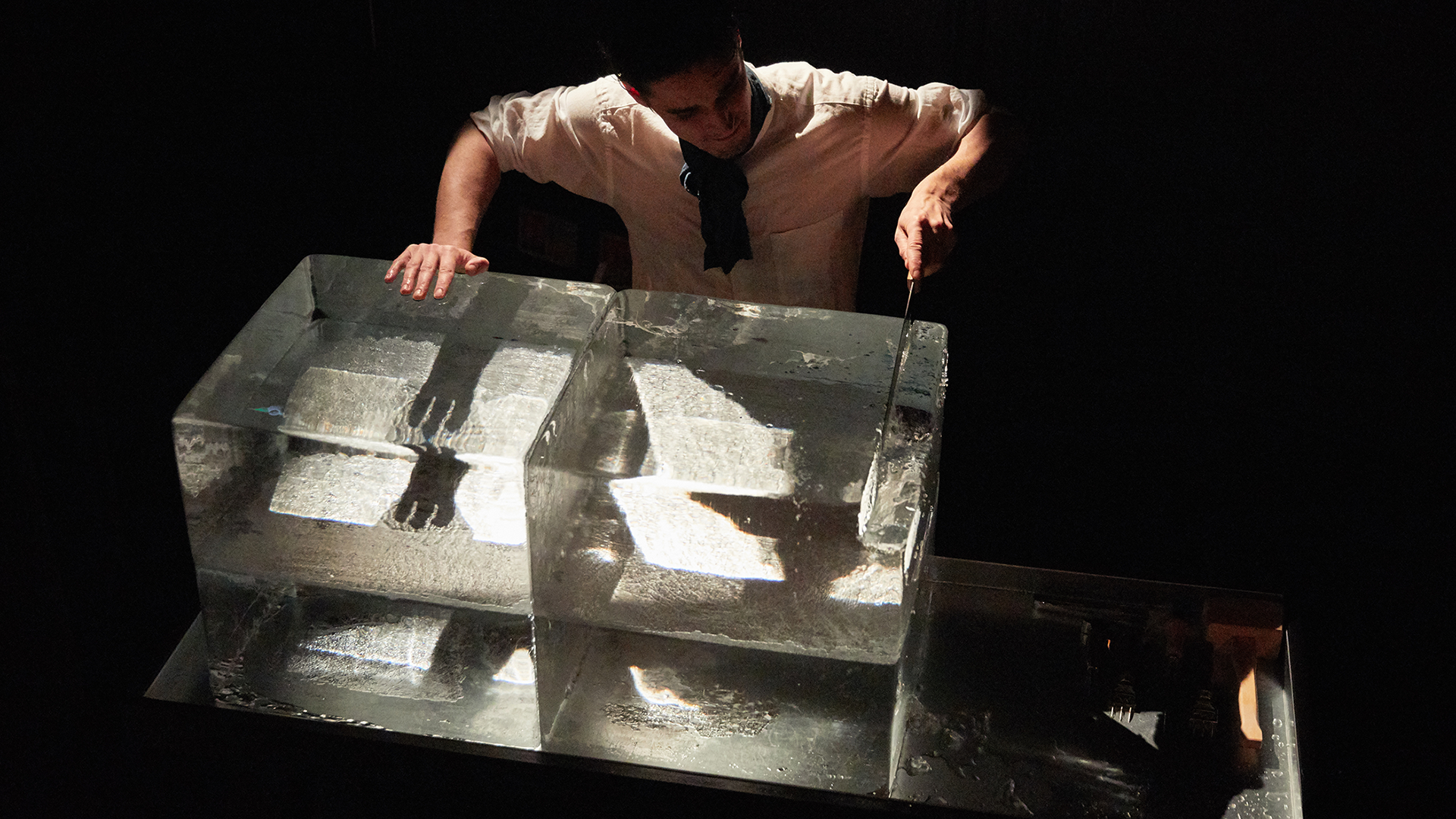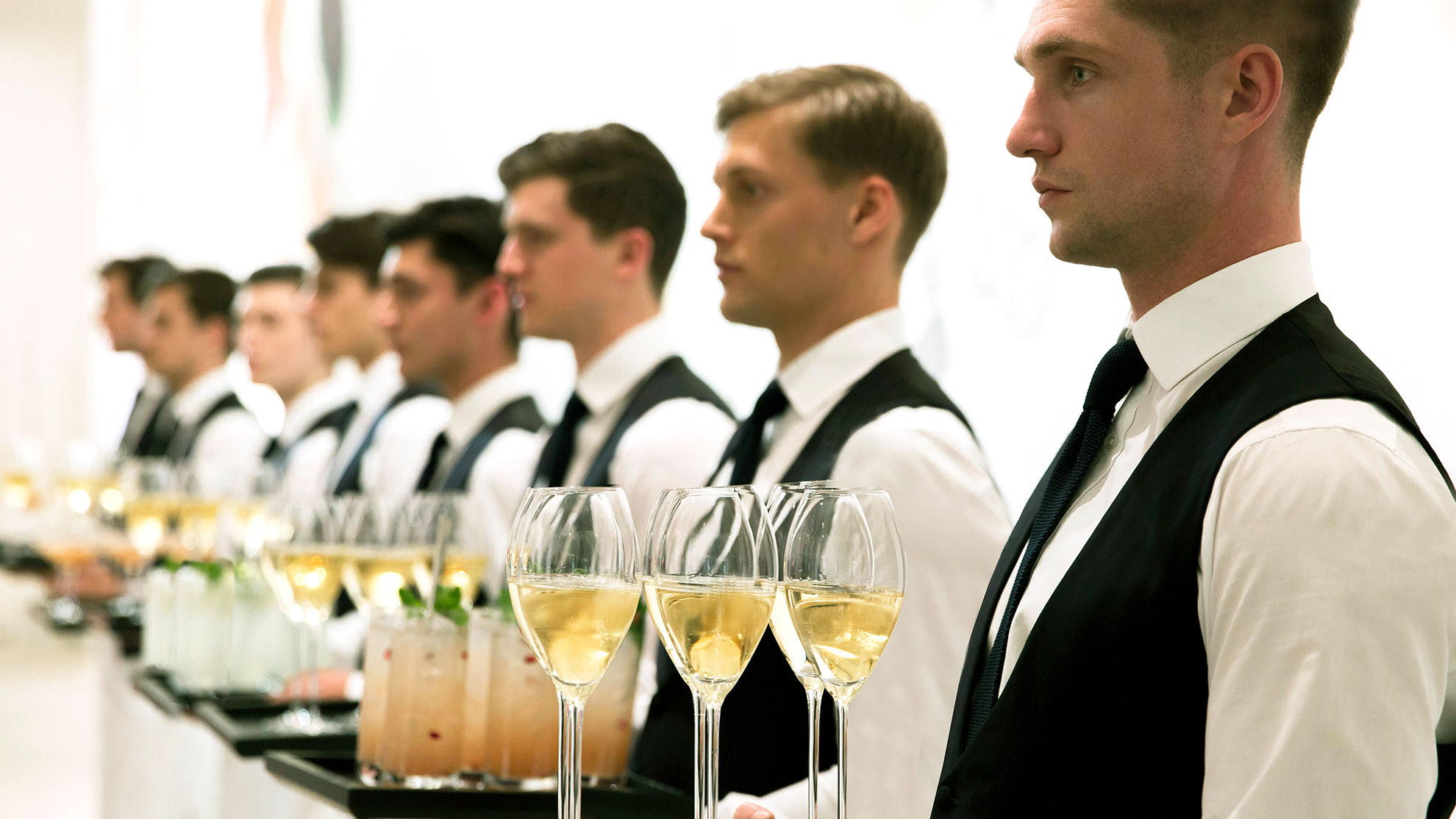Bertie de Rougemont
Whether it’s an intimate ad dinner hosted by a magazine editor or a 300 strong banquet for one of the world’s biggest luxury goods brands, Bertie de Rougemont and his troupe of handsome cohorts and creative culinary artists at Cellar Society are on hand to fit the bill.
Where did it all begin?
I was born in Paris some 50 years ago and I was ushered off to boarding school in England when I was 7. I turned from a little French boy over a period of time into an Englishman. I then worked for several years at CBS Records in the UK, Italy, France and Germany. One day, I decided that I'd had enough and wanted to do something that I knew that I would naturally be much better at, which was food, drink and service. I started Cellar Society almost 20 years ago in the spare room of my house in North London. We grew the company from our small domestic kitchen. My in-laws were living across the road and Carol, my mother-in-law who became my first head chef, jumped in and joined us on this elegant adventure.
At that point, we had two domestic kitchens and we just slowly but surely grew the business by doing wine tastings for corporates, banks, lawyers and insurance companies. We started doing wine tastings with food. On occasion, we worked with caterers — who are still selling well today — but we realised that we didn't like the food or the service and they didn't really get us. The food was very much from the school of hotel banqueting and there are very few hotels that do good events food — almost none.
So, we thought we’d change that by cooking our own food. As you know, things went a bit wrong with the economy in the City but luxury brands still seemed to prosper at the time. We got our break with Purple PR — the company in London that works with a lot of fashion and luxury brands. We did a tasting for them and they loved it so they chucked a few little morsels at us. Before we knew it, we were working with Prada, Gucci and Dior and it slowly but surely grew to what it is now.
You are one of the best loved and frankly coolest caterers in London. What is it about you?
It is rather like an old man who still feels like a teenager. Sometimes, we can't quite believe what we do because we look back and it doesn't feel like it was that long ago that we were pretending to be something that we probably didn't know that we were. What made a difference for us is that nobody was involved in catering or that kind of thing. We didn't bring any bad habits with us. We didn't bring a jaded, cynical view of how you feed lots of people. We all love food; we'd all eaten in restaurants around the world and I come from a family where food would be the only thing we spoke to each other about. And being European, I travelled a lot and I count myself lucky that I got to eat in amazing places. There is a place in Lyon where my father knew we could eat tripe and all sorts of crazy stuff. We brought that love of food with us and I suppose having an understanding of how important service is, from a European point of view. In Anglo-Saxon and northern European countries, service was looked down upon, certainly at the time. That combination has helped us to aspire to do restaurant quality food and something slick and polished but also that has an element of excitement. A bit of show without it losing its seriousness. So not overly event-y, but still exciting.




What has been the learning curve?
When we grew into our shoes and got some rhythm going, a lot of our competitors weren't thinking in that way. And many of them still aren’t, thankfully. They were concerned about margins and practicality. A lot of them will say, “We did that course in 19 minutes, we only had two hot covers and we only used two kilowatts of electricity”. With us it's always been the other way around - what do we want to achieve in terms of the final piece, the quality, the experience? And less of a practical thing. During the initial stages, it was an adventure of the heart and of the stomach more so than a profit and loss account. You learn your lesson when you do a job you don't earn any money for but everyone thinks is amazing. You know with time and experience you will learn how to become a profitable company and also deliver events that people like and that they want again.
How do you describe your culinary style?
We are modern European. It is more difficult for a catering company to pin down that kind of style than it is for a restaurant, because if you're a catering company people come to you and expect you to deliver what they ask for. Whereas if you go to restaurants, you go because you like the food that they serve, you go there to eat. People come to us because they have a guarantee of quality. They don’t want to take a risk and they want what is perceived as the best within catering. But if they ask us to do a Middle Eastern style vegan meal for the launch of a camel skin handbag, then we have to do that even if it wasn't what we were into. So, we have to serve everything from burgers to foie gras and langoustines with caviar via a variety of other styles and nationalities. And everything that we do has to be very good and delivered at scale. If you ask me how we describe our food, my heart — the heart of the company — says that we are ingredients led. We like to work with good ingredients. But I could never say that the ingredients we use are of the same quality as, say, Skye Gyngell at Spring, because she has a farm that produces very small amounts of hand-reared vegetables that are sung to and patted to sleep at night and awoken to the sound of the bassoon. They are phenomenally expensive. We never shy away from spending money, but the difficulty is you cannot get them in the quantity that we need. An awful lot of restaurants write their menus around the ingredients. We can’t do that because our menus have to be agreed and signed off and tasted weeks, if not months in advance.
There is a lot of pressure, then?
We get a lot of people who come to events who really know what they’re talking about when it comes to food and we need to make sure that we don’t create dishes where our clients would be embarrassed if someone complained about the food. Thank goodness it doesn't happen. Most people in our game are so cost driven that they buy entry level quality and that, I'm afraid, translates to the dishes. I'd rather use really good ingredients and do very little to them than buy a whole lot of crap and over process them and produce a dish that is basically designed to be as stable as possible and require the least amount of work on site. We operate like a restaurant. Generally, we have about twice as many chefs at events as any other caterer does. But that's because we’re trying to produce restaurant quality food. Restaurateurs are serving tables in rotation so the chefs at the pass are only ever banging out a maximum of six plates at a time, whereas we're trying to serve 200 people in the room in 10 or 15 minutes.
You are known for the quality of your service. What are the requirements for one of your new recruits?
Staff is really important. It has been one of the cornerstones of what we do for a very long time and that's primarily because of the clients that we have. Most of my clients are fashion or luxury brands. For them, everything that we do in their store or at a launch needs to fit hand in glove with the brand.
Luxury brands want everything to be perfect and beautiful and they also want the experience of service to be perfect. If you have handsome young boys who are well turned out with a bit of hair and make-up; who’ve been briefed and rehearsed properly with the right attitude; who are friendly and know their attitude on the night will make a marked difference to the enjoyment of the guests; then that's where we come from. And it does make a huge difference.
How do you keep up the morale?
The UK is not a country that you would associate service with as a career but being in service is less frowned upon than it used to be. We pay extremely well, so that's the first thing. We pay them a lot more than a restaurant would because they're part time because a lot of them are models or actors. Secondly, we pick out people that we've seen at smaller events or during training that we recognise have potential. A lot of these guys work with us for eight, nine, ten years then they disappear because they get a role in a film or a play. We offer them a great in between thing. We treat them well, we feed them well, we don’t shout at them. We bring out the best in them. And I think if you treat people with respect, invariably you are going to get paid back through the way that people perform.
How do you brief them?
A briefing needs to be organized and lengthy. A lot of caterers I've seen out of professional curiosity give rough, last minute briefings that are not properly thought through. We try as much to make sure that we've got a decent briefing followed by a rehearsal so that the boys know exactly what they're doing. We also provide the uniform so they're always well turned out. They don’t turn up with crumpled trousers and scuffed shoes. They feel good, like they’re dressed up. That makes a big difference. Then we have a system where we have senior guys leading by example.
Because we do exciting, interesting and beautiful jobs they are more likely to be engaged. We use choreographed service, so you have to get involved in the rehearsal or you won’t know what to do. That way they are more likely to pay attention because if you don’t, you’re more likely to mess it up.
What makes a great event?
Decent quality food and drink that’s not pretending to be something else. So, the first thing is just making sure that food and drink is delivered properly. That you've got friendly, caring service — people who are trying hard to please is really important. Then simplicity. The best events are those where things are kept simple, where there are a few points to be made and they're done really well. I hate it when you turn up to an event and there's a line of waiters with about 17 different types of drinks — warm cocktails and flat champagne. It doesn't impress.
For me, turning up to a summer picnic where all they're serving is sparkling water with lemonade or rosé has an element of elegance that it wouldn't have if they had a bar with slicked-back spotty bartenders trying to mix sweet cocktails with watermelon. If I were to have a party, I would focus on generosity of heart, generosity of food and drink, simplicity. I think those are the things that are most important to engender a feeling of conviviality and friendship.
If you look at Prada, for example. They serve champagne out of a tumbler, but the tumbler is very elegant. It's a very fine tumbler, with just the right weight. When you drink champagne out of it, it feels right and it feels very chic. I could go on about this for weeks. It’s that thing when you walk into an event and you go, wow this is cool. A lot of brands are obsessed with venues and entertainment, but ultimately for me the basic ingredients — and I would say this because I'm a caterer — is getting the food, the drink and the service right and that will give you the right atmosphere.

